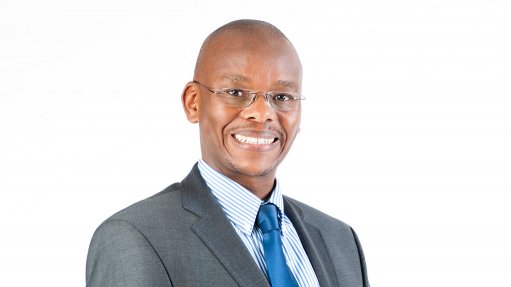
Outgoing Competition commissioner Tembinkosi Bonakele
The Competition Commission of South Africa has signed a memorandum of understanding (MoU) with the Egyptian Competition Authority (ECA) to establish a general framework for bilateral communication and cooperation in the fields of competition law and policy, as well as enforcement.
The MoU, which was signed at the sixteenth Annual Competition Law, Economics and Policy Conference in Sandton, Johannesburg, on August 31, forms part of multilateral competition initiatives aimed at strengthening bilateral ties by enhancing technical cooperation and information sharing on respective competition laws and policies.
The MoU was signed by outgoing Competition commissioner Tembinkosi Bonakele and ECA chair Dr Mahmoud Ahmed Momtaz. The cooperation stipulated in the MoU may include several activities in the field of competition law, enforcement and policy.
“Our respective countries face several developmental challenges. These include poverty, inequality and unemployment, all of which require our respective competition authorities to play a broader role in addressing them,” Bonakele said.
Among the areas of cooperation are the provision of technical assistance to enhance each party's competition policy and enforcement capacity, as well as the exchange of information on and discussion of major issues of mutual interest, such as specialised studies, experiences in competition law enforcement, recent key developments in competition policy and enforcement or enactment.
The two parties will also cooperate on the notification and support prior to or after law enforcement against anti-competitive activities, cartelisation, mergers and relevant cases that may have a material effect on either of the parties, as well as answer related questions and share information and data as permitted under law.
The MoU also allows for coordination and cooperation in law enforcement, if necessary, within the limit of reasonably available resources – so long as such an effort is compatible with the legislation and crucial interests of each country.
Moreover, there will be communication in terms of acts, enforcement decrees, enforcement rules, laws and regulations in the pipeline of enactment, as well as cooperation to respond to discussions on multilateral economic issues, competition policy and law enforcement.
In light of the MoU, both parties may also establish working groups to conduct joint studies on matters of common interest.
The two authorities – within the framework of cooperation in the field of competition policy – will aim to ensure study visits and experts’ training, webinars, calls and group calls, as well as participation in conferences, symposia, seminars and other events organised by either party.
Both parties will also take part in organising meetings of the parties and senior leadership for discussing the perspectives and directions in which the bilateral cooperation will continue each year, while also exchanging documents, studies and publications.
Egyptian Ambassador to South Africa Ahmed El Fadly was also in attendance during the signing ceremony.
“The ECA is one of Africa’s longest established and respected competition authorities. We at the Competition Commission of South Africa have followed with great interest the recent efforts of the ECA. In particular, we noted the ECA’s focus on tackling coordination in the public and private sectors, which is part of the vision of the ECA for 2021 to 2025,” Bonakele said.
He added that the MoU would deepen the technical cooperation between the two authorities, building upon initiatives such as the Heads of Authority Dialogue on Digital markets.
“As economies increasingly digitise and as economies within Africa move towards greater integration, competition law and enforcement is increasingly cross-border in nature. Competition law authorities globally are recognising that increasing cooperation is one of the tools required to ensure more effective competition law enforcement,” Bonakele said.